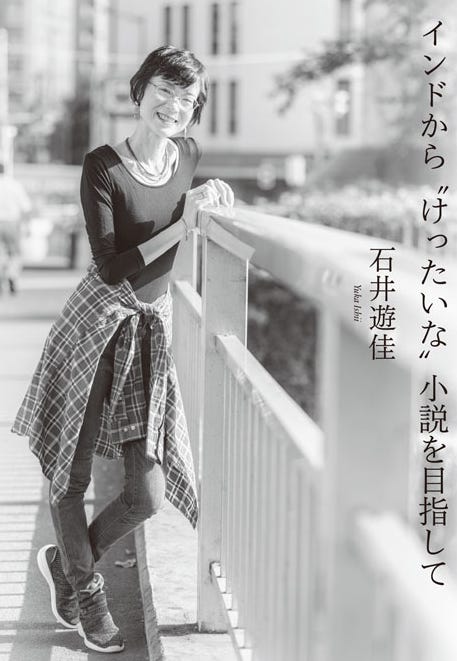Winners of the 158th Akutagawa Prize and Naoki Prize
The 158th Akutagawa Prize and Naoki Prize were announced yesterday in Tokyo. I am always interested in this award, but not always excited to actually read the winning books. This year’s winners—both the authors and the books—seem like a breath of fresh air, and make me excited about where Japanese literature is going, and surely that’s the whole point of literary prizes?

Yoshinobu Kadoi and Chisako Wakatake at the award ceremony Source: NHK The Akutagawa Prize was awarded jointly to 石井遊佳 (Yuka Ishii) for 「百年泥」 (“Hundred Year Mud”) and 若竹千佐子 (Chisako Wakatake) for 「おらおらでひとりいぐも」 (“I Go As I Go By Myself”).

Yuka Ishii
Source: Shinchosha Yuka Ishii (54) began writing in college and has continued writing and submitting her novels and stories to new writer competitions ever since. Although she did not have any success until 「百年泥」won the Shincho New Writer’s Award in 2017, in an interview Ishii said that she never grew impatient because she felt that no matter how many times she was reborn, she would always be an author. She (reluctantly) moved to Chennai, India, in 2014 with her husband, who studies Sanskrit, and now teaches Japanese in an IT company. Ishii used her own experiences during the flooding in Chennai in December 2015 in her novel. The main character of “Hundred Year Mud,” also a Japanese teacher in Chennai, gets caught up in a hundred-year flood that releases mud and a stream of missing people and objects. With elements of magical realism (Ishii is a fan of Gabriel Garcia Marquez), the narrator vicariously experiences the past of the various objects dug out of the mud. However, she also intersperses memories of her experiences teaching Japanese and recollections of her mother and ex-husband in this novel, which begins as the narrator starts to cross a bridge and ends as she steps off the bridge. Chisako Wakatake, who won an award for new writers from a literary journal and now the Akutagawa Prize for her debut novel,「おらおらでひとりいぐも」, is 63 years old, making her the second oldest person to win this award (Natsuko Kuroda won in 2013 at age 75). Wakatake focused on raising her two children and running her home until her husband died when she was 55, at which point she began taking writing classes. The narrator of her novel, Momoko, is a widow in her 70s who misses her husband and is estranged from her children, but also enjoys her new freedom. Written in Tohoku dialect, Momoko talks to herself and those in her past as she looks back at her life and strives to enjoy the time she has left. The title, also in dialect, seems to quote a line in Kenji Miyazawa’s poem, 永訣の朝 (The Morning of Last Farewell), on the death of his sister. (There is more information on Kenji Miyazawa and a translation of this poem by Roger Purvell here.) This connection to Kenji Miyazawa continues with the winner of the Naoki Prize,「銀河鉄道の父」 (“Father of the Milky Way Railroad”) by 門井慶喜 (Yoshinobu Kadoi). Kadoi writes historical novels and mysteries, and has been nominated for the Naoki Prize three times. His novel tells the story of Kenji Miyazawa, one of Japan’s greatest writers, from the perspective of his father, who could not understand why Kenji did not want to take over the family pawn shop and was mystified by his passion for writing, but supported him anyway. The novel also depicts Kenji’s struggles to become independent economically and emotionally. These selections—a novel by a woman who kept writing until she finally found acclaim at age 54, a novel by a woman who didn’t even begin writing until age 55, and a novel about the life of one of Japan’s best-loved author—show that writing and books have a strong pull in Japan.


